#camus at combat
Text

Photo Credit: lightholder_books
#albert camus#camus#absurd#absurdism#camus book cover#neither victims nor executioners#combat#between hell and reason#camus photo
35 notes
·
View notes
Text

November 19, 1946
Neither Victims nor Executioners
The Century of Fear
“The seventeenth century was the century of mathematics. The eighteenth century was the century of physical science, and the nineteenth the century of biology. Our twentieth century is the century of fear. Fear isn't a science, you may be thinking. Well, to begin with, science is no stranger to fear, since the latest theoretical advances have led science to repudiate itself, and since its practical applications threaten the entire earth with destruction. Furthermore, even if fear can't be considered a science in itself, there is no question that it is a method.
Indeed, what is most striking about the world we live in is first of all the fact that most people, broadly speaking, are deprived of any future (other than believers of one sort or another). No worthwhile life is possible without projection onto the future, without promise of development and progress. To live with one's back to a wall is a dog's life. But people of my generation and of the generation just now taking its place in factories and classrooms have lived and are living more and more like dogs.
Of course this is not the first time that people have faced a materially obstructed future. In the past, however, they used to overcome obstacles by speaking out or shouting out their discontent. They appealed to a different set of values, on which they pinned their hopes. Today, no one is talking (apart from those who repeat themselves), because the world seems to us to be led by forces blind and deaf to warnings, advice, and supplications. Something in us succumbed to recent experience. That something is man's eternal confidence, which always fostered the belief that we could elicit human reactions from other human beings by speaking to them in the language of humanity. We have witnessed lying, humiliation, killing, deportation, and torture, and in each instance it was impossible to persuade the people who were doing these things not to do them, because they were sure of themselves and because there is no way of persuading an abstraction, or, to put it another way, the representative of an ideology.
The long dialogue among human beings has now come to an end. And of course a man who cannot be persuaded is a man who makes others afraid. So that alongside people who stopped speaking because they deemed it pointless to try, a vast conspiracy of silence has arisen and continues to spread, a conspiracy accepted by those who quake in fear and who find every reason in the world to hide their quaking from themselves, and encouraged by those who find it in their interest to do so. "You must not talk about the purge of artists in Russia, because that would play into the hands of the reactionaries.” "You must keep silent about the British and American decision to keep Franco in power because to talk about it would play into the hands of communism." As I said earlier, fear is a method.
Between the very general fear of a war for which everyone is preparing and the very specific fear of lethal ideologies, it is therefore quite true that we live in terror. We live in terror because persuasion is no longer possible, because man has been delivered entirely into the hands of history and can no longer turn toward that part of himself which is as true as the historic part, and which he discovers when he confronts the beauty of the world and of people's faces. And because we live in a world of abstraction, a world of bureaucracy and machinery, of absolute ideas and of messianism without subtlety. We gasp for air among people who believe they are absolutely right, whether it be in their machines or their ideas. And for all who cannot live without dialogue and the friendship of other human beings, this silence is the end of the world.
In order to escape from this terror, we need to be able to think and to act on the basis of our thoughts. But the problem is that terror does not create a climate conducive to thinking. My view, however, is that rather than blame our fear, we should regard it as a basic element of the situation and try to remedy it. Nothing is more important, for this affects the fate of a large number of people in Europe, people who, having had enough of violence and lies, having seen their fondest hopes dashed, and being loath to kill their fellow human beings even in order to persuade them, are equally loath to see themselves persuaded in the same manner. Yet this is the dilemma that the vast masses of Europeans face, those who belong to no party or who are uncomfortable in the party they have chosen, who doubt that socialism has been achieved in Russia or liberalism in America, and yet acknowledge the right of people on both sides to assert their version of the truth while denying those same people the right to impose that truth by murder, either individual or collective. Among those who wield power today, these people are without a kingdom. They will be able to gain recognition for their point of view (without necessarily securing its triumph) and reclaim their homeland only when they can consciously formulate what they want and express this in terms simple enough and strong enough to bind a range of energies. And if fear is not the right climate for proper reflection, then they must first come to terms with fear.
In order to come to terms with fear, we need to understand what it signifies and what it rejects. It signifies and rejects the same fact: a world in which murder is legitimate and human life is considered futile. Therein lies today's primary political problem. Before dealing with the rest, we have to take a position on this. Before we can build anything, we need to ask two questions: "Yes or no, directly or indirectly, do you want to be killed or assaulted? Yes or no, directly or indirectly, do you want to kill or assault?” Anyone who answers yes to these questions is automatically caught up in a web of consequences that is bound to change the way in which the problem is posed. My aim is to detail just two or three of those consequences. In the meantime, honest readers may wish to ask themselves these questions and answer them.”
20 notes
·
View notes
Text
Why The Universe Should Not Be Viewed As Indifferent
Humanity provides the Universe with meaning!
Absurdus… In Latin out of tune, discordant…. Claiming the universe, all there is, is absurd should be seen as absurd… Why is Camus wrong about the indifference of the universe? It’s simple: we are part of the universe, we are not indifferent, so the universe is not indifferent.
This argument was sensed by Camus, apparently, so he tried to deny it with a counterexample that he made up.…

View On WordPress
0 notes
Note
Very random but do you have any headcanons about Itachi and by extension Shisui's lifestyle in the modern era? For example, would they use Android or Iphone, or what sort of food preferences they would have like gluten free or vegan? Or what about their workout regimen? Not to mention, the kind of shampoo they would use (sorry if that's too specific)
I personally see Itachi as a very reticent person who would thrive in marathon training outside of any combat training. Do you have any opinions about that or anything related to Itachi headcanons in general?
In the modern AU, I see Itachi going through the same kind of things he does in canon, but on a lesser scale. His dynamic with his family and Shisui would be more or less the same.
Itachi is the Android person. He doesn't like showing off and is content with the simpler things in life. He is vegetarian. Shisui doesn't mind eggs and some seafood.
His favourite person is Sasuke. Obviously. But Shisui is up close as well. There were times in Itachi's life when he had no idea what was going on and Shisui stood beside him. Itachi is always thankful for that.
The only thing Itachi doesn't compromise with is his hair. So, he regularly does shampoo and uses conditioner on his hair. Shisui doesn't really care about his own and if he's running out of time, he doesn't mind using washing powder on his hair either.
Itachi is definitely introverted. Though since in the modern world he might not be training rigorously because he's not a ninja, he'll spend a lot of time studying.
He reads Kafka, Murakami, Plath, Dazai, Dostoevsky, Nabokov, and Camus a lot. Shisui tries to get him to read something else as well but Itachi gets bored of his recs real soon. Shisui and he argue a lot on the kind of books they like. Sasuke just stays out of their arguments because he's more of a comic book person. His arguments tend to be with Naruto the most. And they're never on the same page.
Itachi has a strained relationship with his parents. It's not too bad, but he feels uncomfortable whenever he's home. He knows he's loved, but he can't bring himself to be comfortable with his parents around. His strict father and his mom being an ideal wife have contributed a lot to him being inexpressive. Being a genius, a prodigy, best at everything is tiring. Everyone thinks he's having the best of all worlds, but in fact, he sometimes breaks down because he can't handle it. As if he's not allowed to fail. He wants his parents to be proud of him.
He knows he's the best at what he does. It's not outright arrogance but confidence that shows in his persona. He always ends up stealing the limelight, no matter who the object of centre is meant to be. It occasionally causes a rift between him and Sasuke. No, Sasuke doesn't say it out loud, but Itachi understands that Itachi stealing the attention that Sasuke deserved hurt his little brother. He hates seeing Sasuke sad because of him. Once he understands what is wrong, Itachi always removes himself from the picture, making last minute excuses why he can't make it. It happens with him and Shisui too. But Shisui tries to make him understand that he doesn't mind it and it isn't his fault. Though Itachi won't listen. He doesn't like being inconvenience to the people he loves.
Itachi is Sasuke's rock. Every time Sasuke needs something or wants someone to root for him, he always has Itachi's support. What he doesn't realize is that Itachi needs his support just as much. Itachi finds dinners with his parents comfortable only when Sasuke is around. Sasuke talks a lot, and that's therapeutic for Itachi. Sasuke's presence makes his life so much easier.
Both the brothers sometimes have heart-to-heart with each other. Sasuke mostly rants about his life and Itachi offers his opinions and suggestions, most of them work out for Sasuke. Sasuke wants to know about Itachi too and Itachi has no idea what to say about himself and his life. He doesn't want to burden Sasuke with all that he feels. Not that Sasuke doesn't manage to get some answers out of Itachi. He's understood that asking his older brother questions directly won't help. So he beats around the bush a lot until Itachi begins to speak.
One day when their parents were out of town, Sasuke managed to pry some answers out of his brother, and was horrified to know that the Itachi Uchiha had struggles too.
Ever since they were kids, Shisui would come over to the Uchiha household for sleepovers. And when Mikoto and Fugaku fell asleep, all three kids would indulge in pillow fights. Sasuke and Shisui would gang up on Itachi because that's one of those things that draw some reaction out of Itachi.
#itachi#sasuke#shisui#uchiha brothers#itachi uchiha#uchiha itachi#shisui uchiha#sasuke uchiha#ask#anon#if these feel sad it's because i spent all day rotting in my bed and crying#and i hope the whole thing makes some sense#itachi hcs#itachi headcanons#shisui headcanons#my aus#sasuke headcanons
76 notes
·
View notes
Text

"La paix est le seul combat qui vaille la peine d’être mené"
Albert Camus
62 notes
·
View notes
Text
Did you accidentally see Odasaku’s last words as Nihilistic instead of Absurdist?
I do plan to write a larger analysis of Odasaku’s character, but I had the realization as to why some see his words as so negative when they were not to me: You do not see living kinder as enough of an answer to the overly sinking feeling of a meaningless life. You try to be too objective, too rational, as to why someone should live, so you’re mad at Odasaku for not saying an answer that doesn’t exist.
The idea that our life is meaningless is not an inherently depressing or negative one to live with, it’s what you choose to do with that mindset that decides it. No matter what branch of Nihilism, Nihilists decide not to engage with life beyond that it is meaningless, so typically they end up stuck where they are and forever feel an overarching, aching loneliness to what they feel as fact.
Although Dazai wasn’t in the most realistic position to be in, his struggle with Nihilism is pretty obvious in his time in the mafia. More specifically, it’s Existential Nihilism he’s trying to combat. He was at his most nihilistic before he met Chuuya, an utterly passive force that refuses to do more than the bare minimum and opts to attempt suicide instead. When he finally joined the Mafia, he tried to find life in the violence and death and why it could matter, but he couldn’t. It was a doomed pursuit from the moment he tried.
Unlike a lot of characters, Dazai is trying to find a rational meaning for why he should live. A Nihilist does not see an Existentialist’s proposition of subjective meaning as enough to justify why they’re still around in an absurd world where they can’t rationalize it as an actual meaning. There is no real truth except what they can be sure of, which is themselves. So he falls back into his most Nihilistic state once again, throws himself into suicidal situations, but keeps living anyway because maybe something would prove him wrong. Eventually.
He doesn’t try anything new or leave the mafia after this expected outcome because nothing other than his own expectations would happen, even in the world of light, nothing would matter. Genuinely, nothing will fill this hole for him in the way he wants it to because his intelligence leaves him trapped in a cage of his own making, worsening his suicidal ideation. When Odasaku confronts him in his dying breaths, he states it as a matter of fact because he’s been in a similar position to him when he was younger, but truly was he able to give him the advice he needed in his last moments, only through him losing this will to live could he understand his ideation to this point. An Odasaku pre-events of Dark Era would not be able to connect with him on this level, so I ask you to please recognize that.
His first few words were so Dazai would be willing to listen to him. It takes much more than to be a friend for him to listen to them. Odasaku does not come from a negative place, he’s stating what Dazai has always been thinking. When Dazai hears those words, he’s not discouraged, he’s thinking that since he understood him in such a specific way, what would Odasaku tell him to do then? He tells him not of what to do about life, an unsolvable case, but about how he could continue living.
Now this is where you need to understand what I meant by Absurdist. Absurdism, to be brief, focuses on the conflict between human beings seeking rationality and the irrational world we live in being meaningless. It concludes that since it is a futile objective to seek, there are three traditional ways to continue this realization that comes from Albert Camus’s The Myth of Sisyphus. The first one is suicide, which is a highly discouraged option since it only has us succumb/surrender to the absurd and doesn’t solve a thing. The second is denial of the absurd through faith in a higher power, which is a way to live of course, but is considered philosophical suicide.
The third and final option is to rebel, the heavily recommended option. Not to disregard the absurd, but to acknowledge it and to keep living despite our inherent meaningless life. Accept that these are our circumstances, but that doesn’t mean you have to give up on trying to live a life you want, be content with, and to be happy. Dazai was unhappy because he was trying to find the fucking Fontaine of Youth, Aka something that doesn’t exist, and fighting an unnecessary war with himself as the only solider.
The only way he can be happy is to not search anymore and to live his life despite it. This doesn’t solve his suicidal ideation, nothing can truly solve this dilemma, but it will make his life easier to live. This is what makes this piece of advice absurdist. It’s not overly positive because that would be ignoring their reality, this is advice Dazai desperately needed to hear. Anything else of a different tone or stance would be missing the mark with someone like Dazai.
Now absurdists don’t need to live by a certain moral code, that was more so about saving Dazai’s humanity so to speak. He associates being good to having humanity. That’s off-topic though, but it’s whatever I’m going to keep going off-topic. Real talk, I needed to quickly mention that even though their relationship is important, I think some of you are over-idealistic about Odasaku or that their relationship was much more intimate than it actually was when Odasaku was alive.
He was much closer to Dazai as Ango was, but that’s looking at it by Dazai standards. Every time Dazai talked about himself, Odasaku was like “in all our years of knowing each other, I’ve never heard him speak about this.” Pshh, I’m done now.
"Listen." Odasaku wrapped his blood-soaked hand around Dazai's. "You told me if you put yourself in a world of violence and bloodshed, you might be able to find a reason to live..."
[..]
"You won't find it,” Odasaku said in almost a whisper. Dazai stared at him. "You should know that. Whether you're on the side that takes lives or the side that saves them, nothing beyond your own expectations will happen. Nothing in this world can fill the hole that is your loneliness. You will wander the darkness for eternity."
[..]
For the first time in his life, Dazai wanted from the bottom of his heart to know something. He asked the man before him:
"Odasaku... What should I do?"
"Be on the side that saves people," Odasaku replied. "If both sides are the same, then choose to become a good person. Save the weak, protect the orphaned. You might not see a great difference between right and wrong, but...saving others is something just a bit more wonderful.”
"How do you know?"
"I know. I know better than anyone else."
(You guys should totally read The Myth of Sisyphus, I think it would help a lot of your understanding of Dazai)
#bsd#bsd dark era#bsd meta#dazai osamu#oda sakunosuke#Odasaku#bungou stray dogs#it’s incredible he can give this advice on his death bed#especially considering his own position and how he ended up there
45 notes
·
View notes
Text
La paix est le seul combat qui vaille d'être mené. Albert Camus

50 notes
·
View notes
Text
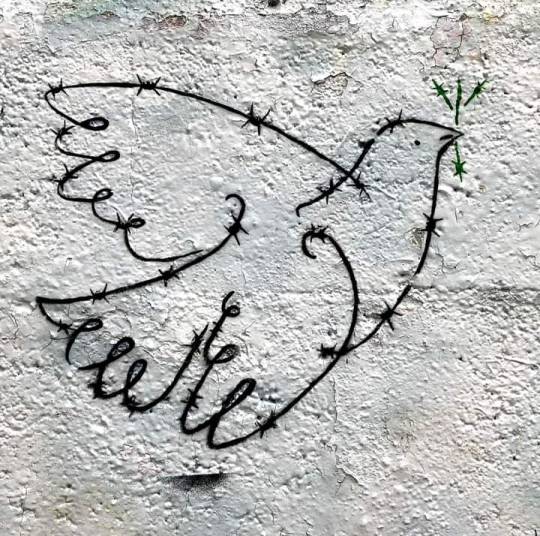
" Devant les perspectives terrifiantes qui s'ouvrent à l'humanité, nous apercevons que la paix est le seul combat qui vaille. Ce n'est pas une prière, mais un ordre qui doit monter des peuples vers les gouvernements, l'ordre de choisir entre l'enfer et la raison. "
Albert Camus
47 notes
·
View notes
Text
Paladin Tourney - Preliminary Poll #1 (Fire Emblem)
Melady (Fire Emblem) vs. Cain (Fire Emblem) vs. Titania (Fire Emblem) vs. Finn (Fire Emblem) vs. Camus/Zeke/Sirius (Fire Emblem) vs. Frederick (Fire Emblem: Awakening)
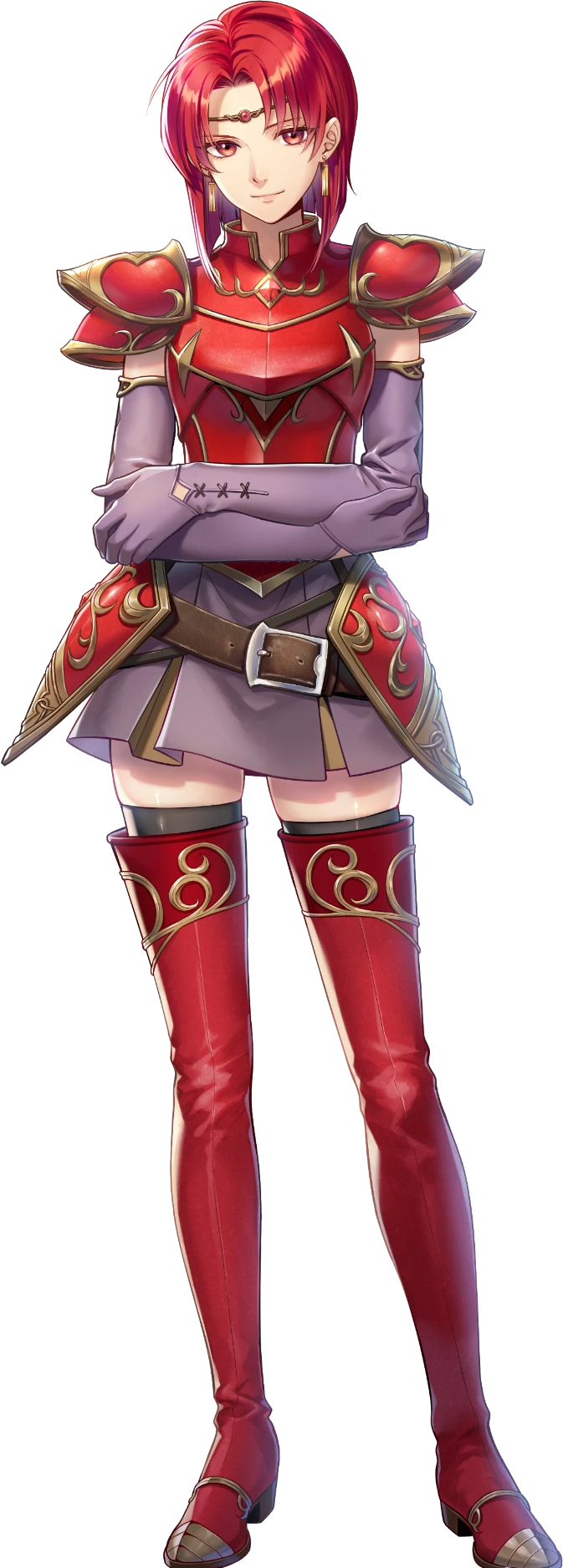

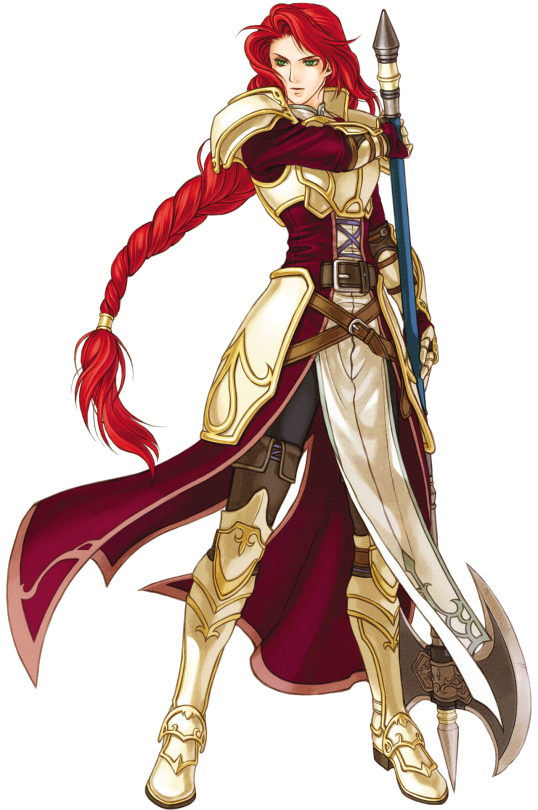
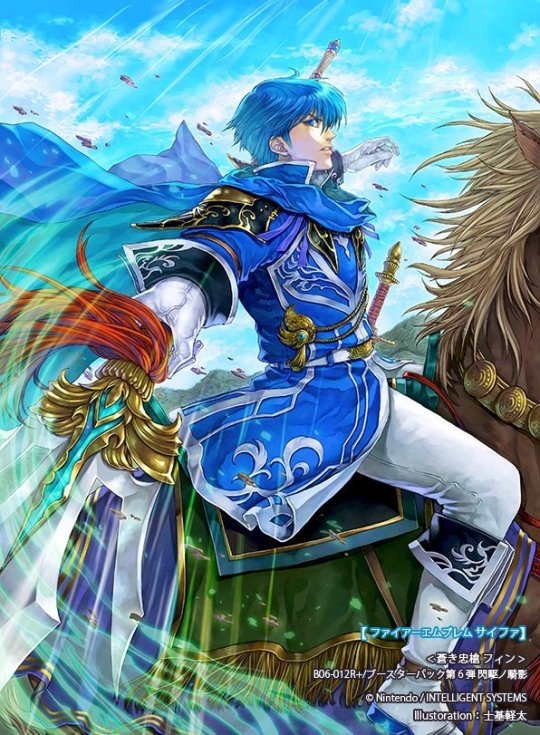

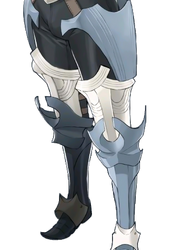
Propaganda:
Melady
Literally will do anything for her princess. She betrayed her kingdom and had to kill her lover because of how loyal she is to princess Guinivere. Also she rides a wyvern, which is badass, and she’s an s tier unit gameplay wise.
Cain
He’s one of Marth’s most loyal knights and serves him until death. Started the “Cain and Abel” archetype, which is a recurring character trope within fire emblem. Also he can promote into a class named paladin.
Titania
She used to serve as a knight for the kingdom of Crimea but became deputy commander of the Greil mercenaries. She’s super cool, very useful in combat, has a huge axe, and is a mother like figure to the other mercenaries. Also her class is literally paladin.
Finn
Will do anything for his lord and lady including raising their son after their deaths. Dude sacrificed so much just so Leonster (his kingdom) gets restored.
Camus/Zeke/Sirius
This guy loses his memory and changes his identity a lot, doesn’t mean he isn’t a good paladin tho!
Frederick
literally paladin class, eternally suffering fantasy babysitter trope, extremely broken in early game!!! iconic, i love paladins who are always suffering for who they’re pledged in service to, “pick a god and pray”
#this is the one I messed up and released earlier with one character missing btw#Paladin Tourney#Paladin Tourney Preliminaries#paladin#dnd paladin#d&d paladin#paladins#knights#tumblr polls#tumblr tournament#tumblr tourney#poll bracket#tournament#tumblr bracket#poll tournament#character polls#character tournament#character bracket#melady#cain#titania#finn#camus/zeke/sirius#frederick#fire emblem#fire emblem: awakening
28 notes
·
View notes
Text
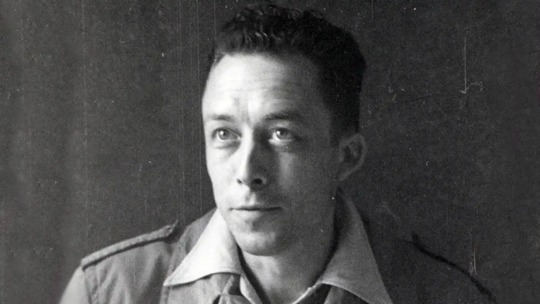
Though it may be true that, at least in history, values, be they of a nation or of humanity as a whole, do not survive unless we fight for them, neither combat (nor force) can alone suffice to justify them. Rather it must be the other way: the fight must be justified and guided by those values. We must fight for the truth and we must take care not to kill it with the very weapons we use in its defense; it is at this doubled price that we must pay in order that our words assume once more their proper power.
S’il est vrai qu’en histoire, du moins, les valeurs, qu’elles soient celles de la nation ou de l’humanité, ne survivent pas sans qu’on ait combattu pour elles, le combat (ni la force) ne suffit pas à les justifier. Il faut encore que lui-même soit justifié, et éclairé, par ces valeurs. Se battre pour sa vérité et veiller à ne pas la tuer des armes mêmes dont on la défend, à ce double prix les mots reprennent leur sens vivant.
—Albert Camus, “Chroniques algériennes,” (1958), reproduced in Essais (1965), p. 898
[Robert Scott Horton]
24 notes
·
View notes
Link
In July 1942, Albert Camus’ doctor in Algeria informed him that he had tuberculosis in both lungs. Camus then went to the mountains in south-central France for the winter. He settled in Panelier, a hamlet in Le Mazet-Saint-Voy situated about two miles from the village of Le Chambon-sur-Lignon in the Massif Central on the Plateau Vivarais-Lignon. In October, Camus’ wife, Francine, went back to her teaching position in Oran, their home in Algeria. Camus remained on the plateau to continue taking treatments for his lungs, intending to return to Algeria shortly thereafter. Instead, he would remain in the remote village for over a year.
On the night of Nov. 7, the Allied armies invaded North Africa. Four days later, the Germans headed south to occupy the formerly Vichy-controlled zone of France. As the entry for that date in his Notebooks indicates: “November 11. Like rats.”
Camus was trapped. He would remain in Panelier until late 1943 when he moved to Paris where he co-edited the Resistance newspaper Combat. During his time on the plateau, he wrote the bulk of his novel, The Plague, which he had begun in Oran. In that novel, mirroring his own experience, the plague becomes synonymous with separation, isolation, and exile.
The text of The Plague can be read at three levels: At the literal level, it is the story of a fictional outbreak of the disease in the city of Oran; at an allegorical level, it depicts the 1940-1944 German Occupation of France; at its most general level, it is an allegory of the human condition.
Although his biographers and critics have neglected this aspect of the novel, as an artist attentive to what was going on around him Camus subtly incorporated local people and events into the narrative he was composing. He was fully aware of the violent Resistance activities in the area and of the remarkable nonviolent rescue mission on the plateau where, mainly from June 1940 to the end of the war, roughly 5,000 refugees were assisted or sheltered, 3,500 of whom were Jewish. No other communal rescue effort on this scale occurred for this length of time anywhere else in Occupied Europe.
#le chambon#world war ii#albert camus#camus#absurd#absurdism#the plague#algeria#tuberculosis#mountains#germans#nazi#nazis#paris#combat#disease#human condition#german occupation#resistance#jew#jewish#rescue
24 notes
·
View notes
Text
"A lo largo de mi vida me he dado cuenta de que todos nuestros problemas provienen de nuestra incapacidad para utilizar un lenguaje claro y conciso"
Jean-Paul Sartre
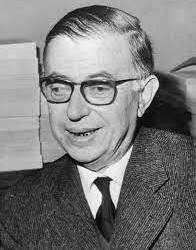
Jean Paul Charles Aymard Sartre fue un filósofo, escritor, novelista, dramaturgo, activista político, biógrafo y crítico literario francés, nacido en Paris en junio de 1905.
Su padre fue un oficial naval y su madre fue prima de Albert Schweitzer, médico, filósofo y teólogo alemán nacionalizado francés premio Nobel de La Paz en 1952. Fue este último quien introduciría a Sartre en la literatura clásica a muy temprana edad.
A pesar de su abrumadora fama mundial, Sartre mantuvo una vida sencilla, con pocas posesiones materiales y muy comprometido con los mas importantes acontecimientos públicos de su época.
Tras cumplir con su servicio militar del cual fue soldado conscripto del ejercito francés y prisionero de guerra en 1940 en Padoux, Sartre regresó a Paris, en donde trabajó en el liceo Condorcet, colaborando con Albert Camus en el periódico de la resistencia denominado "Combat".
En 1943, publicó la que sería su obra más conocida “El ser y la nada” y quien lo llevaría a llevar una visión personal de la obra existencialista de Martin Heidegger, filosofo alemán considerado uno de los más importantes del siglo XX. Aunque también recibió influencias tempranas de Immanuel Kant, Hegel, Soren Kierkegaard y Edmund Husserl.
En su obra, Sartre considera que el ser humano esta “condenado a ser libre”, es decir, arrojado a la acción y con la responsabilidad plena de su vida sin excusa alguna, sin determinismo alguno y con solo algunos condicionamientos culturales, en donde el ser del hombre se distingue del ser cosa, mientras es consciente.
En su libro “El existencialismo es humanismo”, refiere que el hombre es el único que no solo es tal y como él mismo se concibe, sino que es tal y como él mismo se quiere y como se concibe después de la existencia, es decir, “el hombre no es otra cosa que lo que él se hace a si mismo” y a diferencia de Heidegger, el hombre no solo es un “ser-ahí” sino un ser que debe “hacer-se”.
Durante las décadas de 1940 y 1950, las ideas de Sartre eran muy populares, y el existencialismo fue una filosofía preferida de la generación beatnik en Europa y en los Estados Unidos. Sus obras de teatro estaban llenas de símbolos que servían para difundir su filosofía.
En 1964 le fue concedido el Premio Nobel de Literatura mismo que rechazó mediante una carta a la Academia Sueca, en donde argumentaba que el tenía por regla, rechazar todo reconocimiento o distinción, ya que los lazos entre el hombre y la cultura debían desarrollarse directamente, sin pasar por las instituciones establecidas del sistema.
Jean Paul Sartre murió en abril de 1980 en París, de un edema pulmonar complicado con una crisis cardiaca, y fue sepultado en el Cementerio de Montparnasse, Francia.
Fuente Wikipedia y https://www.biografiasyvidas.com/biografia/s/sartre.htm
#jean paul sartre#existencialismo#notasfilosoficas#citas de reflexion#frases de reflexion#citas de escritores#escritores#filosofos#frases de filósofos#Francia#frases de escritores#novelistas#activistas#dramaturgo
38 notes
·
View notes
Note
You mentioned that PGR’s story is the only holding it back right now (or something to that effect?) Me and my pgr playing friend were talking about how the story was good enough to make her roll for Plume despite wanting to save for Selena, despite both of us saying before that the story wasn’t as good as AK or FGO.
What do you find particularly weak about PGR’s story and what direction do you think it has to take to bet real good?
Its biggest weakness is that it doesn't tell its story at all.
Now I haven't played PGR in a bit, but something that immediately struck out to me when I first played it was that there wasn't a story being told: shit was just happening. No whys or hows or whats behind anything, shit was just occuring.
Take Camu's chapter for example. Oh Kamui has another, dark self now. Kamui's run off searching for Tenebrion, whatever that is. Lucia catches up with him eventually. Soon the Purifying Force does too. Then they decide to not kill him. And thats it.
There's no building anything up or character development or themes or anything at all. Experiencing Punishing Gray Raven's story is like reading a wikipedia summary. Stuff is happening in chronological order and characters are doing things to keep that plot going, and that's about it.
The whole chapter with Lucia Plume tried to be some big finale to the 'arc' of the first few chapters by bringing in characters from all the past chapters, which, damn I sure wish you made me care about those past chapters first.
That chapter was maybe the first time I saw PGR even attempt at real storytelling by having actual stakes (Lucia's mind is slowly being overwritten by a new copy of her since she's essentially dying by going in this stronger body) and some real emotional arcs with PRESENTATION and FLOWERY PROSE, but the problem with that was it relied on buildup that was completely nonexistent. Why would I care about the Lucia being erased when she was barely a character despite being the protagonist? It didn't even fuckin matter in the end because the new Lucia Plume ended up acting almost exactly the same afterward anyway, and also had the old Lucia's memories as records she could view.
I couldn't shake the feeling that PGR's storytelling was a bunch of people writing down what they thought would look like a really cool anime but actually not having anything to say, not even "look at how cool our robot girl is." That's why there's so much description in certain events, like Lucia hallucinating the ghosts of her other selves walking past her, but the events themselves are so disconnected from each other that they don't really add up to even a simple story.
And then I just stopped playing PGR entirely, because as much as the action gameplay actually kicked ass and as much as I loved the game's various game design choices and creativity with unit skillsets, I ultimately did not care about anyone or anything within the setting, and surprisingly that turned out to be one hell of a dealbreaker for me even when I was having fun.
I lasted about a year though (stopped right when the Nier collab event started), which says a lot about just how solid the combat system feels. I'm hoping Kurogames' Genshin competitor Wuthering Waves ends up with a much better setting, though I'm already kind of concerned at how repetitive the combat looks vs PGR which gets the appeal of a hardcore character action game dead-on despite the simplified, touchscreen control scheme
110 notes
·
View notes
Text
In honor of this blog’s One Year Anniversary, here are my top 3 BSD theories (in order of most to least likely)
[spoilers for the current arc of the manga]
Theory 1– Albert Camus, the author of The Stranger, will show up within the next few chapters.
Look, we’ve been in Meursault for a while now. We’re all in agreement that Meursault is named after Meursault, the protagonist of The Stranger, right?
I’ll take this theory a step further and say that Camus will use his ability to restore Meursault to its original (undamaged) state. It’s very impractical to have security measures that destroy large portions of the prison, unless, of course, the prison can be restored quickly and easily.
Additionally, it doesn’t seem like it would be too much of a stretch to say that by restoring the prison, Camus can fix the elevator Dazai is currently stuck in and falling to his (improbable) death. We have seen abilities being able to work so long as they’re surrounding Dazai without touching him directly (as seen when Nikolai teleported him out of his cell, and in the 15 Light Novel when Rimbaud extended his ability underneath the ground so that Dazai wouldn’t be touching it). Either way, we know there’s no way Dazai is dying in an elevator crash, and I’d really like to see a Camus Ex Machina.
Theory 2– Higuchi’s ability.
I’ve seen a lot of theories floating around regarding what Higuchi’s ability might be. Although most of them are really good, I personally think a lot of them are too powerful to make sense to introduce this late into the story. There would have to be solid justification for why Higuchi doesn’t use it in battle, or why she isn’t sent out to fight the more dangerous enemies of the series.
However, Higuchi’s primary job is combative, and although I’m not entirely sure what her job is, she seems to be higher ranking than the Black Lizard, and she’s able to give them orders. So her ability is most likely something that would be helpful in combat.
Which is why I’ve reached my theory that Higuchi’s ability is Pain Nullification.
Pain is a very important sensory response because it lets you know you’ve been injured and you should be careful. Many wounds are survivable so long as you treat them soon enough and don’t aggravate them more after receiving them. But what if you weren’t aware that you got injured in the first place? What if you kept fighting with stab and bullet wounds? You’d most likely bleed out quickly, and although you might not die (depending on how severe the wounds are), you would at least pass out.
[the following paragraph has facts taken from a bunch of google articles, so most of it is semi-plagiarized, I am not smart enough to know any of this off the top of my head]
There are people born with the condition called CIPA (Congenital insensitivity to pain and anhydrosis) which prevents them from feeling pain. Most people born with this condition do not live past the age of three, and half of them die from overheating. If the body cannot sense heat, it will not be able to produce sweat to combat the heat. In short: it is very, very dangerous to be unable to feel pain.
She may also be able to use her ability on herself and her comrades in moderation, to help them fight— furthermore, it makes sense that she'd be paired with Akutagawa, given that she could make his lung condition more manageable. Since there is nothing to be done about it, it will not aggravate it further if she nullifies the pain.
Theory 3– The surgeries on the Hunting Dogs are a lie.
[note that I am not up-to-date with the manga, and all the information I have for this is from Tumblr and the Wikipedia pages for all characters involved]
Yeah look this one’s gonna be short because I’m not sure if it makes any sense. But. Hear me out.
You’re telling me there’s a group of overpowered Ability users, whose abilities and physical bodies are enhanced far beyond any normal person… and they’re led by a guy whose ability is to enhance his weapons far beyond any normal weapon? Really? And I’m not supposed to believe that he’s just enhancing them?
My guy here definitely seemed like the type to view the fancy government ability users he’s in charge of as weapons. C’mon. What do you mean he’s not enhancing them. This is a genuine question I’m so lost on this. If anyone wants to explain this to me. I’m open to here whatever explanation the manga gives.
#Special One Year Anniversary Post#The anniversary is technically April 19th but I was pretty busy last week#Bsd#bungo stray dogs#bungou stray dogs#bsd theories#higuchi#hunting dogs#fukuchi#thank you so much to everyone who’s stuck around here for a year!!#And thank you to anyone new who only arrived here recently!!#You are all very special to me and I appreciate every note I get#Every time I see your username pop up in my notifications it makes me genuinely happy#There are a hundred of you here and at this point I think I recognize all of your usernames when I see you come across my dash#I love you all so much#thank you for being here and for enjoying the Anti-Dazai Series!!
42 notes
·
View notes
Text

Twisted Metal for the PlayStation provides a unique backdrop for examining philosophical themes of hedonism, nihilism, free will, and the social contract. This analysis explores these themes, drawing from the philosophies of Epicurus, Nietzsche, Jean-Paul Sartre, and Thomas Hobbes.
1. Epicurean Hedonism and the Pursuit of Pleasure: Epicurus posited that the greatest good is to seek modest pleasures to attain a state of tranquility and freedom from fear (ataraxia) and absence of bodily pain (aponia). In "Twisted Metal," the characters' pursuit of their deepest desires through violent competition might initially seem to align with hedonistic pursuit of pleasure. However, the destructive and self-defeating nature of their quests often leads not to lasting happiness but to ironic twists and dire consequences, reflecting a critique of unchecked hedonism. For example, Sweet Tooth's endless craving for violence mirrors the pitfalls of mistaking fleeting pleasures for true happiness.
2. Nietzschean Nihilism and the Will to Power: Friedrich Nietzsche’s concepts of nihilism and the will to power can be seen in the characters’ existential struggles and their engagement in the brutal competition. Nietzsche argued that traditional values (like moral or religious norms) are baseless and that the will to power, the main driving force in humans, is the essence of life. Characters such as Mr. Grimm embody this philosophy as they navigate the game's world, imposing their will through violence and chaos, often viewing the competition as a stage for expressing their primal instincts and existential command.
3. Sartrean Existentialism and Radical Freedom: Jean-Paul Sartre’s idea that "existence precedes essence" and his emphasis on individual freedom and responsibility echo throughout "Twisted Metal." The characters, each responsible for defining themselves through their actions, are thrown into a world where they must continually choose their paths under extreme conditions. This existential freedom is exemplified by Outlaw, whose narrative often wrestles with moral decisions and the consequences of one’s choices in an anarchic world.
4. Hobbesian Social Contract and the State of Nature: Thomas Hobbes’s social contract theory and his views on the natural condition of mankind as a perpetual state of warfare—“war of every man against every man”—are vividly depicted in "Twisted Metal." The game essentially throws the characters into a Hobbesian state of nature where laws do not exist, and the fight for survival is paramount. The ensuing chaos and conflict illustrate Hobbes's justification for the absolute authority to impose order and prevent mutual destruction, reflecting on what happens when societal bonds disintegrate under the guise of a deadly competition.
5. Camus and the Absurd Hero: Albert Camus's philosophy of the absurd and the concept of the absurd hero are reflected in the characters' relentless pursuit of a wish in a seemingly meaningless and hostile universe. Their participation in the Twisted Metal tournament can be seen as a rebellion against the absurdity of their conditions—striving for meaning in a spectacle of destruction. This mirrors Camus's notion that one must imagine Sisyphus happy as he embraces the struggle without hope.
In conclusion, "Twisted Metal" serves not only as an entertaining vehicular combat game but also as a profound philosophical text that explores deep existential questions through its characters and settings. The game challenges players to consider the nature of desire, the implications of nihilism, the burdens of freedom, the necessity of social contracts, and the human condition in the face of absurdity. It invites players to engage with and reflect on these philosophical themes, making the chaotic battles of Twisted Metal resonate with deeper meanings.
3 notes
·
View notes
Text

"Qu’on puisse ainsi se sentir idéologiquement obligé de traduire le terme anglais de "Tory" – c’est-à-dire de "conservateur" – par celui de "travailliste"[…] montre à quel point l’intelligentsia libérale de gauche a décidément toujours autant de mal à accepter l’idée (que défendaient pourtant, entre autres, William Morris, Pasolini, Camus, Marcel Mauss, Paul Goodman, Walter Benjamin, Piergiorgio Bellocchio, Günther Anders, Guy Debord, Jaime Semprun, Cornelius Castoriadis, Christopher Lasch ou encore Simon Leys) selon laquelle le combat pour une société socialiste décente intègre nécessairement et par définition un "moment conservateur"."
Jean-Claude Michéa, Extensions du domaine du capital, 2023.
2 notes
·
View notes